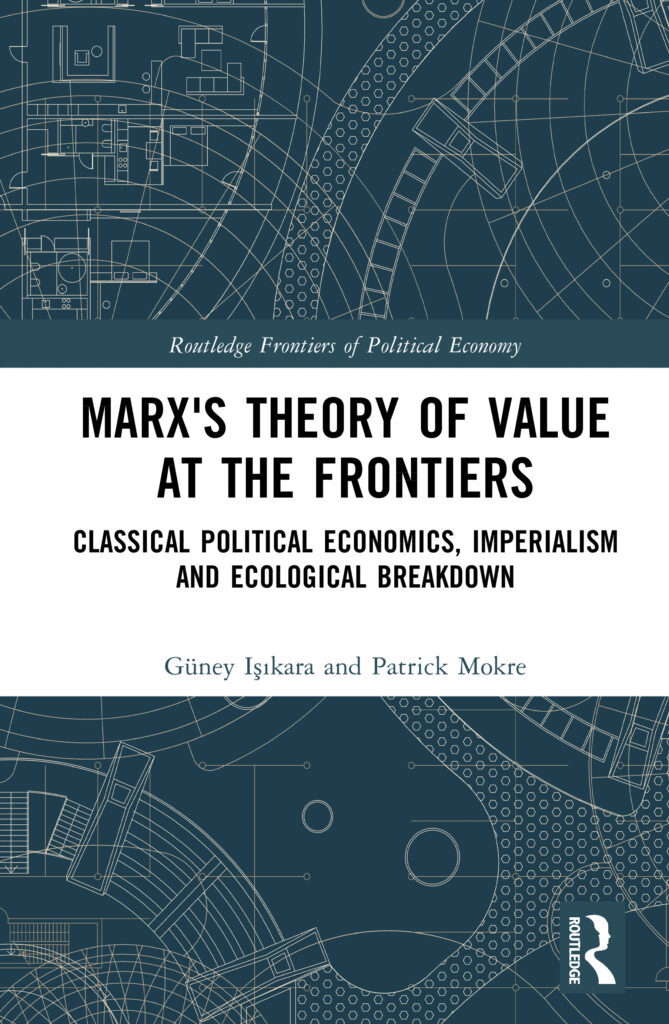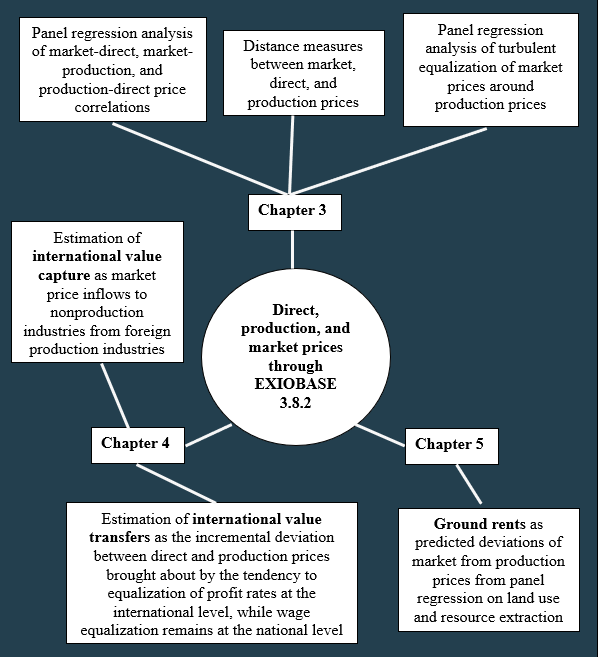
Marx’s Theory of Value at the Frontiers by Güney Işıkara and Patrick Mokre explains and expands value theory to adress core questions of today’s political economy: international inequality and ecological breakdown.
Marx’s Theory of Value at the Frontiers demonstrates that the classical political economists’ approach to value and prices, which finds its most advanced formulation in Marx, sheds light on the source of profits, exploitation, whether equivalents are exchanged in trade, dynamics of asymmetric and uneven accumulation, and the relationship of production to non-human natures at large.

Güney Işıkara and Patrick Mokre argue powerfully that deviations between market prices, production prices, and labor values are central to understanding international value transfers due to differential capital compositions and rates of exploitation, as well as the central role of rent and accumulation in capitalism-induced ecological crisis.